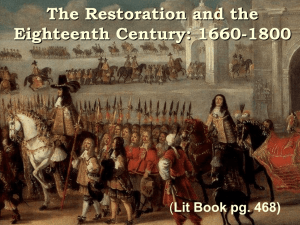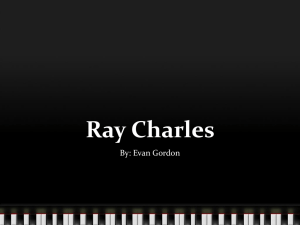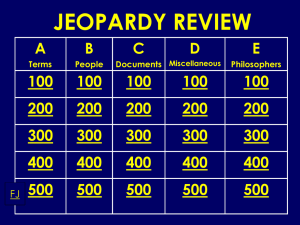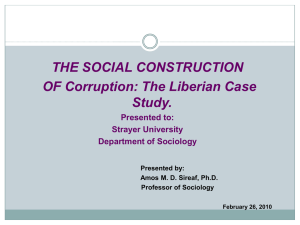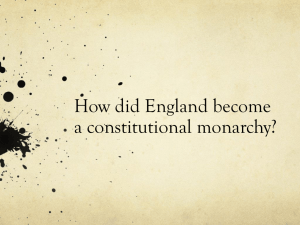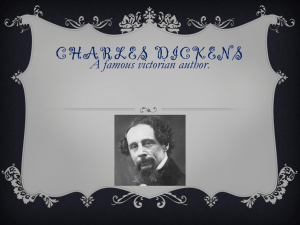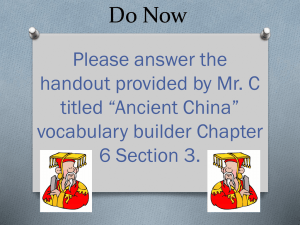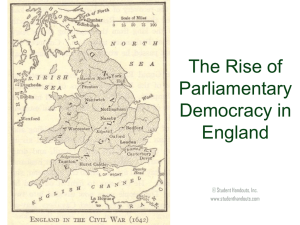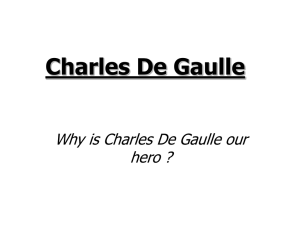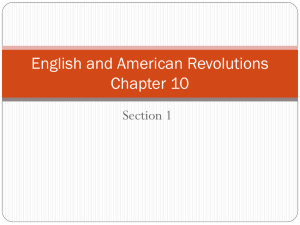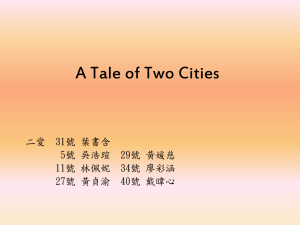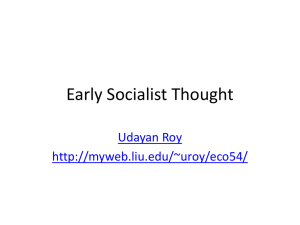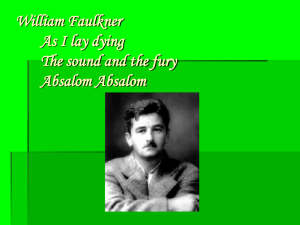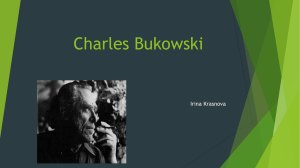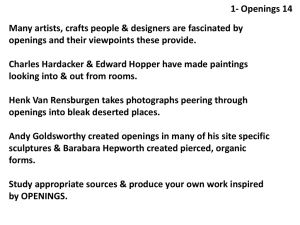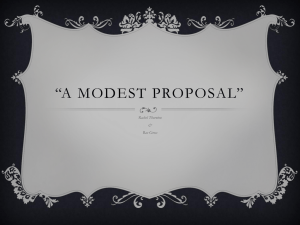CHARLES JONES SOONG
advertisement
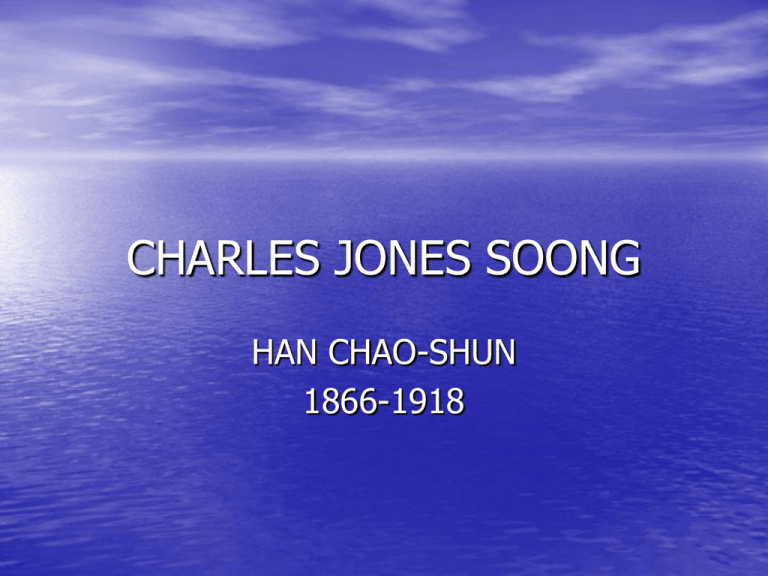
CHARLES JONES SOONG HAN CHAO-SHUN 1866-1918 The Beginning • Charles was born on the Chinese island of Hainan in 1866 • His birth name was Han-Chao-Shun • Went to work as a servant for relatives at the age of 9 • Han tired of the situation, set off to assist his uncles Chinese apparel shop in Boston The Transition • After working in Boston Han met two Chinese • • • cousins B.C. Wen and S.C. New The cousins were from Shanghai sent to get an American education. The boys convinced Han that education was the key to success. Han decided that was what he wanted and informed his uncle that he was leaving to pursue an education. The Travels • One year after going to Boston at the age of 13 • • • Han set off. He stowed away on a ship and met the Captain Eric Gabrielson a faithful Christian man. The captain decided that Han-Chao-Shun was too long so he changed it to Charlie Sun. Charlie convinced the captain he was 15, became a paid member of the crew and moved to North Carolina with Gabrielson. The Missionary • Once in North Carolina Charlie had his name • • • modified one last time to Charles Jones Soong. Charles became involved in the Methodist church and they embraced him. Seeing in him the potential to be a great missionary with the right education. Julian Carr a Tobacco Baron provided the finances to send Charles to Duke University (Trinity College). Charles finished his work at Vanderbilt University in 1885 and returned to China to begin his Missionary work. The Family • Once in China Charles met up with the two • • cousins from Boston. They introduced him to their sister-in-law Ni Kwei-Tseng, a very wealthy western scholar. Charles became a member of the “Red Gang” a secret society who controlled the power in Shanghai. In 1887 Charles married the sister, had their first child and realized that Missionary salary was not going to support his family. The New Business • Charles had acquired many connections over the • • • years between his travels, and came to the conclusion that he wanted to be a Businessman. Charles recognized that the sale of bibles to the poor Chinese was problematic. The bibles were much too expensive for most the population. With the help of his wives wealth, and funds from Julian Carr, Charles started his own printing business focusing on printing Bibles. In no time Charles had become very wealthy from this brilliant business venture. The New Career • Since Charles had spent so much time in the U.S. he was • • • • recognized as a commodity to any company in China doing business with the U.S. Kou-Koong was a Noodle business trying to interface with America. Charles was fluent in both languages but more importantly his character created a strong understanding of both cultures. Charles was the perfect candidate to represent the Kou Koong Family interests. He took and kept this position for the rest of his life, which added greatly to his wealth, and connections. Family Dynasty • Charles and his wife had 3 girls and 3 boys, who all achieved and dominated success in the future of China. Three daughters “The Soong Sisters” • Ai-Ling • Ching-Ling • May-Ling Three Brothers • T.V. Soong • T.L. Soong • T.A. Soong The Soong Sisters • “Once upon a time there were 3 sisters: One Loved Power, One Loved Money, and One Loved China.” • The oldest Ai-Ling married into a wealthy banking family. • • It was said that “if she had been born a man, she would have been running China.” She dominated the family destiny. Ching-Ling married her fathers close friend and leader in the revolutionary movement, Dr. Sun Yat-Sen. She became Vice-Chairman of Mao Tse-Tsung’s Peoples Republic. May-Ling, married Chiang Kai-Shek, leader of Nationalist China a bitter rival of Mao Tse-tung. Loved by Americans she was recognized among the 10 most popular and respected people on earth. The Soong Brothers • T.V. Soong became Prime Minister of the Nationalist China and for some time was considered the “richest man on earth.” • T.L. Soong and T.A. Soong not as notorious as the rest of the family, T.L. Operated a family bank in New York, while T.A. operated a bank in San Francisco. The End • Charles died in 1918 at the age of 52 • Recognized as one of the greatest merchant financiers of all time. • A very resourceful man, was able to collect wealthy people and networks of influential contacts. He had an ability to get support from people that in the end he could convert into profitable ventures.
